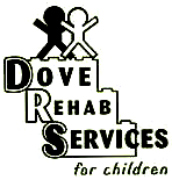Awareness of one’s position in time and space Is a vital skill needed for safety in navigating the environment. This concept incorporates the ability to attend to details as you move through space, being mindful of objects found there. Many children who have sensory processing dysfunction have deficits in this skill and tend to fall or experience collisions as they come close to objects.
Learn more
When presented with a child who has weak “upper body strength” (generally meaning low tone throughout, including poor postural control, slushy or dysarthric speech, poor ocular motility/ visual search patterns, and poor spatial orientation), the need to follow a developmental frame of reference comes into view. While engaging the interest and intellect of the child is a key part of intervention, use of strategies
Learn more
Parents: Because the vestibular system is one of our most primitive sensory systems, it is connected to other basic systems necessary for survival on a reflexive level. This means that your child does not even have to think about key responses when the vestibular system is activated. The vestibular reflexes serve to tie in vision, language and postural reactions on an automatic basis. This
Learn more
